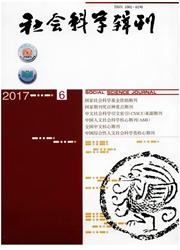

 中文摘要:
中文摘要:
在《资本论》及其手稿中,马克思是以对商品的价值概念的分析作为其政治经济学批判的理论起点的.其价值概念与被资产阶级经济学家还原为与资本主义生产关系无关的纯粹定量的经济范畴的价值概念具有不同的内涵.首先,马克思在对李嘉图的“价值唯实论”和贝利的“价值唯名论”的双重批判中,对价值的性质和内涵进行了重新考察,实现了价值概念的“术语革命”.其次,马克思将价值概念理解为一种“历史性”的范畴,通过揭示现代商品社会劳动取得社会形式的特殊方式,从而揭示和批判了资产阶级政治经济学的形而上学本质.第三,马克思将价值概念作为资本主义生产关系的理论表现,对价值生产过程中的人受资本统治的异化状态进行了揭示和批判,由此构成了《资本论》价值概念深刻的存在论意涵.
 英文摘要:
英文摘要:
In Das capital and its manuscript, Marx analyzes the concept of value of goods as the theoretical startingpoint for his critique of political economy. His concept of Value has different connotations from the bourgeoiseconomists. In the latter view, Value concept is a pure economic category which has nothing to do with the capitalistrelations of production. First of all, Marx criticizes Ricardo’s “realism” and Bailey’s “nominalism”, and explores thenature and connotation of Value, achieving “meaning revolution” of the concept of value. Secondly, believing that theconcept of value is a “historic” category, Marx reveals and criticizes the metaphysical nature of the bourgeois politicaleconomics by revealing the special way that labor obtains from the society in modern commercial society. Third, Marxregards the concept of value as the embodiment of capitalist relations of production, disclosing and criticizing thealienation of people in the process of Value production under the rule of capital. These constitute the deep existentialmeaning of the concept of value in Das capital.
 同期刊论文项目
同期刊论文项目
 同项目期刊论文
同项目期刊论文
 期刊信息
期刊信息
